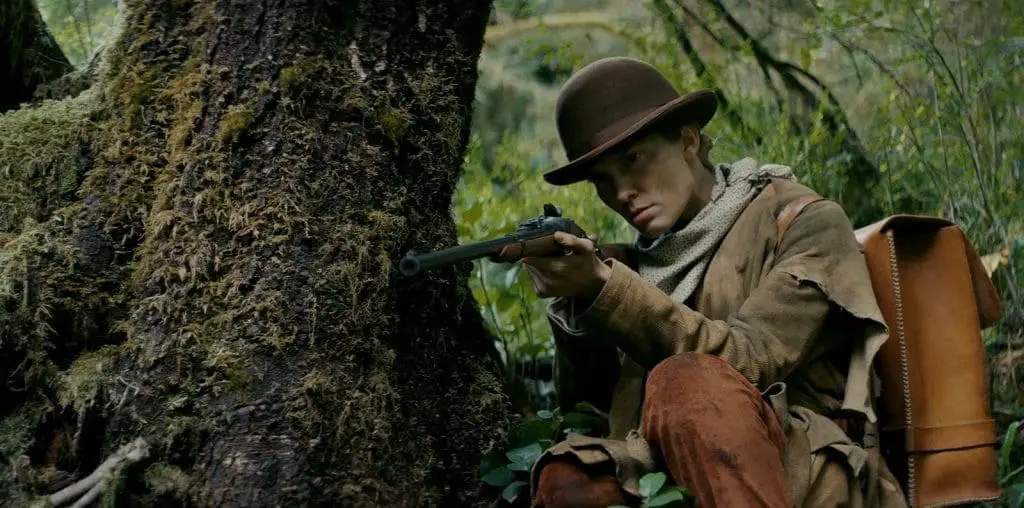
Some people will say that words like “scum” and “rotten” are wrong for Objective Journalism–which is true, but they miss the point. It was the built-in blind spots of the Objective rules and dogma that allowed Nixon to slither into the White House in the first place. – Dr. Hunter S. Thompson, 1994
It’s been a rough millennium for some of America’s more notorious iconoclasts. The last few years have brought us the deaths of singer-songwriter Warren Zevon, comedian George Carlin, and Hunter S. Thompson, progenitor of “gonzo” journalism and the subject of Alex Gibney’s latest documentary, aptly titled “Gonzo: The Life and Work of Dr. Hunter S. Thompson.”
Using footage from interviews and home movies that haven’t been seen in decades, if ever, Gibney traces Thompson’s life and career, focusing primarily on the years between 1965 and 1975. Johnny Depp narrates, and takes us through the high points: the breakthrough of Hell’s Angels; the “Battle of Aspen” – Thompson’s campaign for sheriff of Aspen, Colorado (he lost); Fear and Loathing on the Campaign Trail ’72; and of course, Fear and Loathing in Las Vegas, which would cement Thompson’s legacy, and that of gonzo journalism itself.
These things are all well-known, or should be, but as in his earlier efforts, “Enron: The Smartest Guys in the Room” and “Taxi to the Dark Side,” Gibney presents a great deal of unfamiliar detail. For example, I’d never seen the interview Thompson gave where he took credit for the “Muskie on Ibogaine” rumor, part of his coverage of the 1972 Democratic campaign that many feel was instrumental in securing the nomination for George McGovern (including McGovern himself). And there are plenty of revealing interviews, with everyone from family (ex-wife Sandra, son Juan), colleagues (Tom Wolfe), and friends (Jimmy Buffet, Jimmy Carter, Pat Buchanan), all of whom testify to the fierce strength of HST’s convictions and his lasting influence.
If there’s a complaint to be made about “Gonzo,” it’s the way Gibney glosses over Thompson’s later career. It’s true that Thompson’s identity was becoming increasingly obscured by his Raoul Duke alter-ego, leading to his spending more and more time holed up in Owl Farm. But he continued writing for Rolling Stone, ESPN, and the San Francisco Examiner well into the 1990s. His legacy already established by that time, it’s understandable that none of his later stuff would garner the same notoriety as his early work, but one could easily (and mistakenly) come away from the film with the impression that Thompson did nothing for the last 20 years of his life, and this simply isn’t the case.
That aside, perhaps the most depressing aspect of “Gonzo” is the realization that Thompson’s suicide, while presaged by the Good Doctor himself (this confirmed by longtime collaborator Ralph Steadman), was at least partly attributable to George W. Bush’s “election” in 2000. Thompson’s second wife Anita describes his depression following that debacle, and it’s all too apparent from later interviews with the man that the once stalwart champion of Freak Power had finally had enough.
I freely admit that Hunter S. Thompson is one of the reasons I wanted to become a writer in the first place. I read Fear and Loathing in Las Vegas and on the Campaign Trail ‘72 in high school and like to think his words contributed to my choosing to major in journalism.
And also to dropping it a couple years later.
“Gonzo” is a painstaking account of a man who was more and, ultimately, less than the infamous Raoul Duke. The July 4th release is fitting, for Thompson was a true patriot. His longstanding association with the counterculture notwithstanding, Thompson loved this country and the things it once stood for, and his voice is sorely missed today. Whether you were a fan of his work or not, you’ll find “Gonzo” well worth your time.
I’ll conclude with perhaps HST’s most famous passage:
And that, I think, was the handle—that sense of inevitable victory over the forces of Old and Evil. Not in any mean or military sense; we didn’t need that. Our energy would simply prevail. There was no point in fighting—on our side or theirs. We had all the momentum; we were riding the crest of a high and beautiful wave. . . .
So now, less than five years later, you can go up on a steep hill in Las Vegas and look West, and with the right kind of eyes you can almost see the high-water mark—that place where the wave finally broke and rolled back. – Dr. Hunter S. Thompson, 1971
